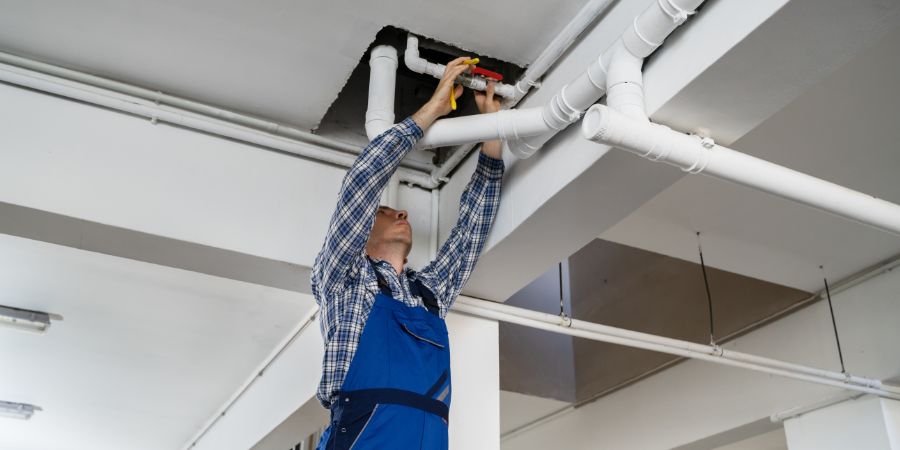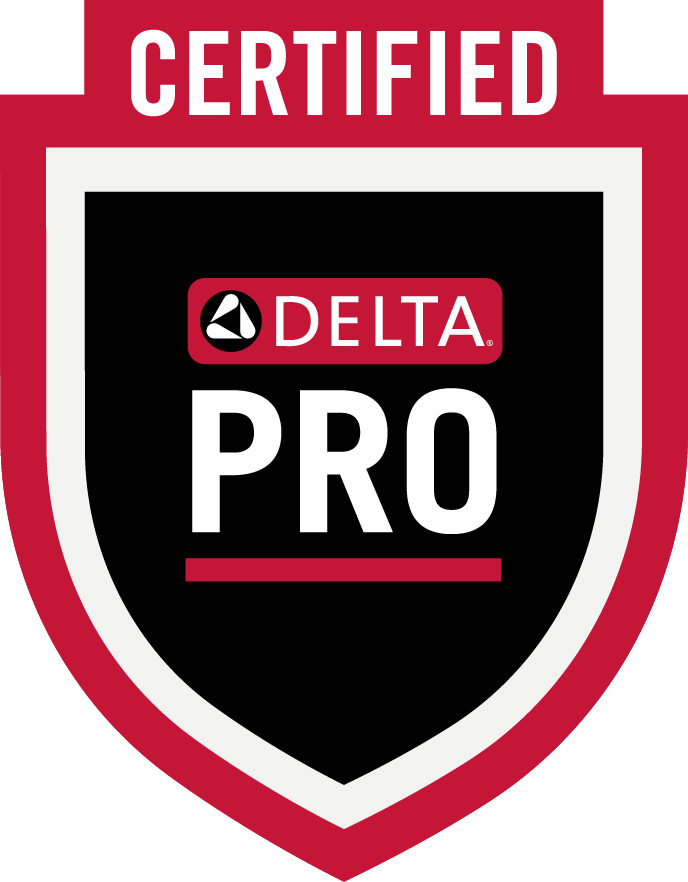Repiping is a critical home improvement task that many homeowners may overlook until significant issues arise. As homes age, so do their plumbing systems, leading to potential problems that can affect water quality, pressure, and overall home safety. At OVC Plumbing and Drain, we believe that being proactive about your plumbing system can save you time, money, and headaches in the long run. In this article, we are hoping to educate homeowners about the importance of repiping, how to recognize the signs that it might be time to replace your pipes, and what to expect during the process.
Repiping is not merely a matter of replacing a few old, leaky pipes; it involves a comprehensive assessment and overhaul of a home’s plumbing infrastructure. Whether you are experiencing frequent leaks, discolored water, or inconsistent water pressure, understanding the nuances of repiping can empower you to make informed decisions about your home’s maintenance. By exploring the causes and benefits of repiping, we hope to provide you with the knowledge necessary to maintain a safe and efficient plumbing system. Let’s take a deeper look.
What Is Repiping?
Repiping is a process that involves replacing old, damaged, or deteriorated pipes in a home’s plumbing system with new, modern materials. This is usually necessary when the existing pipes are beyond repair or have reached the end of their lifespan. The new pipes are typically made of materials like copper, PEX, or CPVC, which offer improved durability and longevity. Understanding what repiping entails can help homeowners make informed decisions about maintaining their plumbing systems.
Materials Used In Repiping
Choosing the right material for repiping is crucial to ensuring a long-lasting and efficient plumbing system. Each material has its advantages, and the best choice often depends on specific home needs and budget considerations.
Copper Pipe
Copper pipes have been the industry standard for many years and for good reason. They are known for their durability and ability to withstand high temperatures, making them an ever popular choice.
PEX Pipe
PEX pipes are increasingly favored due to their flexibility and resistance to scale and mineral buildup. They are also recognized as resistant to the effects of chlorine and are a cost-friendly option when compared to copper pipe.
CPVC
CPVC pipe is a popular choice for repiping due to its durability, affordability, and resistance to corrosion and scaling. Unlike metal pipes, CPVC does not rust or degrade from hard water, ensuring a longer lifespan and maintaining water quality. Additionally, CPVC is lightweight and easy to install, reducing labor costs and minimizing disruption during the repiping process.
When To Consider Repiping
Knowing when to repipe your home can prevent minor plumbing issues from escalating into major problems. An experienced plumber can assess the condition of your pipes and recommend whether repiping is the best course of action.
Leaking Pipes
Repiping is an effective solution for addressing leaky plumbing pipes by replacing old, worn-out pipes with new, durable materials. Over time, pipes can develop leaks due to corrosion, scale buildup, or pressure changes that cause cracks and holes. These leaks not only waste water but can also lead to structural damage and mold growth if left unaddressed. By repiping, homeowners can eliminate the source of leaks, ensuring a more reliable plumbing system that prevents further water loss and potential damage to the property.
Discolored Water
Repiping can effectively resolve issues with discolored water by replacing old, corroded pipes that often release rust and sediment into the water supply. As pipes age, minerals and rust accumulate, leading to unsightly brown or yellowish water that can stain fixtures and clothes. By installing new pipes, homeowners can ensure clean, clear water flow, improving both the appearance and quality of the water used for drinking, cooking, and bathing.
Low Water Pressure
Repiping can significantly improve low water pressure by replacing old pipes that restrict water flow. Over time, mineral buildup can narrow the inside of pipes, reducing water pressure and making daily tasks like showering or washing dishes inefficient. By installing new, unobstructed pipes, homeowners can restore optimal water pressure throughout their home, ensuring a consistent and strong water flow for all plumbing fixtures.
Fluctuating Water Temperature
Repiping can resolve issues with fluctuating water temperatures by replacing old pipes that may be inefficient or improperly insulated, leading to inconsistent heating. Aging pipes often develop leaks or corrosion, which can disrupt the even flow of hot water and cause sudden temperature changes during use. By installing new, high-quality pipes, homeowners can ensure a stable and reliable hot water supply, maintaining consistent temperatures throughout their plumbing system.
Causes Of Pipe Deterioration
Various factors contribute to the deterioration of plumbing pipes over time. Here we look at the top causes.
Aging Plumbing
Aging plumbing systems often suffer from corrosion, mineral buildup, and wear, which can lead to leaks, reduced water quality, and diminished structural integrity. Over time, these issues become increasingly frequent and severe, making it more cost-effective to replace old pipes entirely rather than repeatedly repair them. Repiping provides a long-term solution by installing modern, durable materials that can better withstand the demands of daily use and prevent future plumbing failures.
Water Quality
Hard water contains high levels of calcium and magnesium, which can lead to mineral buildup inside pipes, causing blockages that reduce water flow and pressure. This buildup also creates rough surfaces within the pipes, accelerating corrosion as water flow becomes turbulent, wearing down the pipe material over time. As corrosion progresses, it can lead to leaks, pipe bursts, and contamination of the water supply with rust and other particulates. Repiping with corrosion-resistant materials can mitigate these issues, providing a long-term solution to the problems caused by hard water and corrosion.
The Repiping Process
Repiping is a comprehensive process that requires careful planning and execution to minimize disruption to your home.
Understanding what to expect during a repiping project can help alleviate any concerns and prepare you for the process. Initially, the plumbing team will protect your home’s interior by covering floors and furniture to prevent damage.
Assessment
The first step is an assessment by a qualified plumber, who will evaluate the condition of your existing pipes and recommend the best course of action. This evaluation requires expertise about pipe materials and their expected lifespans.
Set A Timeline
Once the decision to repipe is made, the plumber will outline the project timeline and steps involved, including removing old pipes and installing new ones. While the process can be extensive and time consuming, a professional team will ensure the job is done efficiently, with minimal impact on your daily routine.
Accessing Old Pipes
The actual work involves opening up walls, ceilings, and floors to access and replace pipes. While this can be disruptive to a family’s routine, skilled plumbers work methodically to complete the project as quickly as possible. After the installation, the team will restore any affected areas and test your new plumbing system to ensure it is functioning optimally.
Benefits Of Repiping
Repiping offers numerous benefits that enhance the safety, comfort, and functionality of your home’s plumbing system.
Leak Reduction
Outdated plumbing likely consists of loose joints, or pipes that have lost their integrity and frequently leak. New pipes eliminate the risk of leaks, reducing the potential for water damage and mold growth.
Improved Water Quality
Improved water quality is another significant benefit, as new pipes prevent rust from breaking off the pipe’s interior surface and entering your water supply. New pipes also eliminate leaching of contaminants from old lead or metal pipes that are destroyed by corrosion.
Better Water Pressure
Additionally, repiping can increase water pressure, making everyday tasks like showering and dishwashing more efficient. This is because the interior lining of new pipes is smooth and corrosion-free so there is nothing to restrict the full force of water flow.
Increased Home Value
Finally, a modern plumbing system can boost your home’s value, as potential buyers appreciate the reliability and efficiency of updated infrastructure. Outdated plumbing is like a timebomb ready to go off at any momonet creating extensive damage and costly repairs.
Looking To Replace Your Outdated Plumbing?
Repiping is a vital maintenance task that can significantly impact the safety, efficiency, and value of your home. Understanding the signs of pipe deterioration, the causes behind it, and the benefits of repiping can empower homeowners to take proactive steps in maintaining their plumbing systems. By replacing old, deteriorating pipes with new, modern materials, you ensure a safe and reliable water supply for your household.
At OVC Plumbing and Drain, we are committed to providing outstanding repiping services in Irvine. Our team of experienced professionals is dedicated to assessing your needs and delivering efficient, high-quality solutions to combat the ill-effects of outdated and failing plumbing.If you suspect your home may need repiping, don’t hesitate to reach out for a consultation. Let us help you protect your investment and ensure the safety and comfort of your home for years to come.






